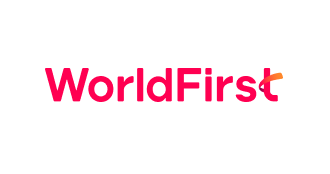Business Bank Accounts
Best Business Bank Accounts UK 2026
Finding the right business bank account can make running a small business easier and save you time when managing its finances.
- Compare business current accounts with NerdWallet
- See account fees, special offers, features and pros and cons
- Find accounts from trusted providers to suit your business needs
A business bank account is a standalone current account designed specifically for use by businesses. Whether you’re set up as a sole trader, a partnership, a limited company or run a charity, a business account can help you organise and track the payments that come into and go out of your small business. By keeping everything separate from your own personal finances, you should also find it easier to monitor how your business is performing, prepare your financial accounts and manage your tax obligations.
Promotion
Virgin M Account for Business
For businesses with a turnover of less than £1 million, the M Account for Business gives you free day-to-day online business banking for all your everyday needs.
Our Top 10 Business Bank Accounts
The table below offers a quick and easy comparison of certain business bank account fees for our top providers. Monthly fees are essentially a fixed charge for having an account, card purchase fees relate to accepting payments, and bank transfer fees are charges related to Faster Payments, BACS, and similar.
Each of these products may be one of a range offered by the provider. Always check terms & conditions for suitability before applying. Commission earned affects the table sort order. Only affiliated products are shown. Other products are available. Read our guide to ratings.
Provider | NerdWallet’s Rating | Monthly Fee | UK Card Purchase Fees | UK Bank Transfer Fees | |
|---|---|---|---|---|---|
 | M Account for Business Best All-Rounder | Free | Free | From free | |
 | Business Bank Account Best for Taking Payments | Free | Free | Free | |
 | Basic Business Account Best for International Banking | £10 | Free | 10 free per month | |
 | Business Free Account Best for Tracking Real Time Expenses | Free | Free | Free | |
 | Business Account Best for Global Payments | Free | Free | Free | |
 | Business Account Best Business Support | Free for 12 months | Free | From free | |
 | Start Up Business Account No Monthly Fees for 2 Years | Free | Free for 24 months | Free for 24 months | |
 | Business Bank Account Best for Ethical Banking | Free | Free | Free | |
 | Lite Business Account Best Online | Free | Free | Free | |
 | Business Account Best for Branch Access | Free for 12 months | Free | 100 electronic payments out free per month |
Compare our Best Business Accounts
Virgin Money M Account for Business
- Available for eligible businesses with up to £1m annual turnover
- Must be based and operated in the UK (excluding Channel Islands, Isle of Man and Northern Ireland)
- All owners, directors, senior managers and account signatories must be over 18 years old
NerdWallet's Review Summary
Virgin Money’s M Account is a great all-rounder. For starters, no monthly charges and free basic transactions make it a cost-effective choice that won’t eat into your cash flow.
Plus, you get everything you expect from a traditional bank, while saving time on admin with integrated accounting software and an online hub for your business’s data.
Virgin Money key features:
- No monthly fees
- No basic transaction fees
- 6-month free trial with Xero
- Track cash flow and more business data with the M-Track dashboard
- FSCS protected
- Earn 0.25% cashback on debit card purchases
- Bank online, via app, over the phone or in branch
- Enhanced deals for tradespeople
Who can apply?
To apply for a Virgin M Account, your business must turnover less than £1 million a year, and be based in the UK (excluding Northern Ireland, the Channel Islands and the Isle of Man).You must be at least 18 years old.
For further details, read NerdWallet’s Virgin Money Business Account Review.
NerdWallet's Pros & Cons
Pros:
- No monthly fee
- Free basic transactions
- Great for managing your money with the M-Track dashboard
Cons:
- Free account only for companies with annual turnover under £1 million
- No branches in the South of England, Wales or Northern Ireland
This product may be one of a range offered by this provider. Always check terms & conditions for suitability before applying.
Tide Business Account – Free
- For registered business accounts: Must be a director of a UK company registered with Companies House.
- For sole trader accounts: Must be a UK-based sole trader or freelancer with a valid UK home address and be registered with HMRC
- For all accounts: you must be aged 18+, have a valid UK phone number and address, and hold a compatible device registered to a UK App or Google Play store
NerdWallet's Review Summary
Tide is a great choice for business owners who want to streamline their admin. For example, take the pain out of managing payments by easily charging customers via card reader, smartphone, payment links or the web.
You can even save money at the start of your business’s journey by registering a new limited company through Tide for just £14.99 – far cheaper than the £50 it costs with Companies House.
Tide key features:
- No monthly fee
- Free bank transfers for 12 months when you apply via NerdWallet
- Connect accounting software from QuickBooks, Sage and Xero
- Save over £35 on new limited company registration
- Take payments with card readers, payment links, tap to pay and more
- Earn interest with a free Instant Saver Account
Who can apply?
You must be aged 18 or over and have a UK-based business.
For more details, read NerdWallet’s Tide Business Account Review.
NerdWallet's Pros & Cons
Pros:
- Free bank transfers for 12 months when you apply via NerdWallet
- No monthly fee
- Great options for taking payments
- Get started quickly by opening an account within minutes
- Earn interest with a free savings account
Cons:
- No branches
This product may be one of a range offered by this provider. Always check terms & conditions for suitability before applying.
Revolut Basic Business Account
Review Summary
If your business crosses borders, Revolut’s Basic Business Banking Account carries a suite of helpful features. Spend in over 150 currencies and exchange £1,000 per month at the interbank rate.
That means you can avoid the stress of juggling multiple tools by managing your money, charging customers and sending payments across the globe all from one place.
Revolut key features:
- Spend in 150+ currencies
- Take payments via phone, card reader, web and more
- Exchange £1,000 per month at the interbank rate
- No-fee international transfers at higher paid tiers
- 10 free local transfers per month
- Great mobile app
- Integrate accounting software
Who can apply?
Companies applying for a business account with Revolut should be active and fully incorporated. Your legal home address should be in the UK, European Economic Area (EEA), Switzerland, Australia, Singapore or the United States.
To learn more, see NerdWallet’s Revolut Business Account Review.
NerdWallet's Pros & Cons
Pros:
- Great international transfer features
- Extensive options for taking payments
- Enjoy smart features with Revolut’s innovative banking app
Cons:
- All accounts have a monthly fee
- You cannot deposit cash or cheques
- Accounts not FSCS protected
This product may be one of a range offered by this provider. Always check terms & conditions for suitability before applying.
Wallester Business Free Account
- Must be a legally registered business entity (Ltd, LLP, PLC, Sole Trader or Freelancer) in the UK, European Economic Area (EEA), Switzerland, USA, Canada, or other supported regions
- All account holders and authorised users must be 18 years or older
- Suitable for businesses of any size and industry, including individual entrepreneurs
NerdWallet's Review Summary
A simple, fee-free account for managing expenses and issuing virtual debit cards that offers an impressive alternative to traditional business banking.
Designed for startups, SMEs, and digital-first teams, this account helps you control spending. A smart choice for businesses needing scalable card and expense management.
Wallester Key Features:
- 300 free Virtual Cards included on the plan.
- Unlimited physical cards available.
- Global card use anywhere that accepts Visa.
- International card payments in 10 currencies.
- No monthly fees or setup costs.
- Integrated accounting with QuickBooks, Xero and others.
- Real-time expense tracking and budget control tools.
Who can apply?
UK, Swiss, or EEA-registered businesses can all apply for a Wallester business account.
NerdWallet's Pros & Cons
Pros:
- No monthly subscription fee
- Issue hundreds of business expense cards instantly
- Great for international and remote teams
- Smart budgeting and expense management tools
Cons:
- No overdraft or business loan options
- Mobile app has mixed reviews
- Not covered by the FSCS protection scheme
This product may be one of a range offered by this provider. Always check terms & conditions for suitability before applying.
WorldFirst Business Account
Review Summary
As a multi-currency account, WorldFirst’s World Account could be a great option if your business is about to break into new markets. For starters, payments can be received in over 20 currencies without charge, and sent in over 100 currencies. On top of that, there’s no set up or monthly fees, as well as the chance of a sign-up bonus to boost your profits.
WorldFirst key features
- No monthly fees
- Potential $100 sign-up bonus
- Spend in 100+ currencies across 210+ countries
- Free payment collection in 20+ currencies
- 0% FX fees on 15 currencies
- Up to 1.2% cashback on card payments
Who can apply?
You must be 18 years old or above to open a WorldFirst account, but unlike many other banking providers, you don’t need a UK address.
NerdWallet's Pros & Cons
Pros:
- Earn cashback on spending
- Avoid foreign transaction fees in 15 currencies
- Receive and spend in 20+ currencies
- Fast international payments
- Easy collections from 130+ marketplaces
Cons:
- No overdraft facility
- Some outgoing payments have fees
- No FSCS protection
This product may be one of a range offered by this provider. Always check terms & conditions for suitability before applying.
Barclays Business Account
Review Summary
A Barclays Business Account includes free basic transactions and no monthly fees for 12 months, keeping more money in your business’s pocket.
If you worry about the challenges of running and growing a business, Barclays offers tailored support across a huge range of sectors, ensuring your venture has what it needs to flourish.
A great option for those looking to scale, account holders are in line for great savings on bookkeeping software, business insurance and more through Barclays’s marketplace of partners.
Barclays key features:
- Free basic transactions
- No monthly fee for 12 months
- FSCS protected
- Free FreshBooks accounting software
- Save big on business purchases from partners like Meta and AWS
- Dedicated sector-specific support
- Bank online, via app, over the phone or in branch
Who can apply?
You must be 18 years old or above and have the right to live in the UK. The account is for sole traders and limited companies.
For more details, read NerdWallet’s Barclays Business Account Review.
NerdWallet's Pros & Cons
Pros:
- Free basic transactions
- Free access to FreshBooks accounting software
- Help when you need it, thanks to extensive business support options
Cons:
- Monthly fee of £8.50 after first year
This product may be one of a range offered by this provider. Always check terms & conditions for suitability before applying.
NatWest Start Up Business Account
- Available to eligible customers over 18, who have the right to be self employed in the UK
- This ‘Startup business account’ is available for businesses that have been trading for less than 1 year and have a projected or existing annual turnover of less than £1m
NerdWallet's Review Summary
NatWest’s Startup Business Account has no monthly fees and free basic UK transactions for two years, helping you keep more of your money where it belongs: in your business.
Get banking essentials like branches and a great mobile app, and tackle your money management headaches with free accounting software.
NatWest key features:
- No monthly fee
- No basic transaction fees for 2 years
- FSCS protected
- Free accounting software from FreeAgent
- Great mobile app
- Bank online, via app, over the phone or in branch
Who can apply?
The NatWest Start-up business account is for businesses that have been trading for less than 12 months, have turnover under £1 million and are registered in the UK. A different account is available if your business is more established. You must be 18 or older to apply. One person on the application must be a UK resident.
For more details, see NerdWallet’s NatWest Business Account Review.
NerdWallet's Pros & Cons
Pros:
- No monthly fees
- Enjoy two years of free basic transactions
- Manage accounts easily online, via the app, branch, Post Office or phone
- Free accounting software from FreeAgent
Cons:
- No branches in Scotland or Northern Ireland
This product may be one of a range offered by this provider. Always check terms & conditions for suitability before applying.
The Co-operative Bank Business Bank Account
NerdWallet's Review Summary
Get ethical banking and keep your costs down with The Co-operative Bank’s Business Bank Account, which has no monthly fees and no fees for standard transactions (excluding cash/cheque).
Co-operative Bank key features:
- No monthly fee and no fee for basic transactions
- FSCS protected
- Integrate accounting software from Sage, Xero and QuickBooks
- Access to Clover payment terminals for £1 a month for the first 12 months (fees apply)
- Free unlimited access to the Go Get Paid app
- Rated ‘Excellent’ on Trustpilot
- Bank online, via app (mobile banking subject to eligibility), over the phone or in branch
- Ethical banking policy
Who can apply?
This account is for Limited Companies, Sole Traders, Partnerships, or Limited Liability Partnerships with up to 10 key individuals. All applicants and key people must be aged 18 or over and UK residents, with a business address in the UK.
For more details, read NerdWallet’s The Co-operative Bank Business Account Review.
NerdWallet's Pros & Cons
Pros:
- No monthly service fee
- Free standard transactions (excluding cash/cheque)
- Account management online, by phone, via app or branch
- Arranged business overdraft of up to £250,000 (subject to status and eligibility)
Cons:
- No branches in Northern Ireland
This product may be one of a range offered by this provider. Always check terms & conditions for suitability before applying.
Monzo Lite Business Account
Free
Free
Free
n/a
- Available to sole traders, or the director of a registered limited company by shares (Ltd)
- Must be based in the UK
NerdWallet's Review Summary
Monzo’s Lite Account is a free business bank account that gives customers simple ways to pay, including in-person contactless card payments.
You can apply in minutes, with around nine in 10 applications accepted the same day. Once open, money can be moved easily with instant UK bank transfers.
Digital receipts, transaction insights and 24/7 customer support are part of the package too.
Monzo key features:
- No monthly fee
- Fast set-up
- FSCS protection
- Accept payments via smartphone or payment links
- Earn interest on the money in your Instant Access Pots
Who can apply?
You must be a sole trader or director of a limited company to apply. Only open to UK businesses. T&Cs apply.
For further details, read NerdWallet’s Monzo Business Account Review.
NerdWallet's Pros & Cons
Pros:
- No monthly fee
- Same day account opening for most customers
- Free basic transactions
- Great app, with helpful features
- 24/7 customer support
Cons:
- No phone or branch banking
- Business accounts not available to charities or partnerships
- No accounting software integration with the Lite account
This product may be one of a range offered by this provider. Always check terms & conditions for suitability before applying.
Lloyds Bank Business Account
- To qualify for this account you need to be a sole trader, partner or company director and be aged 18 or over
- You must have a turnover of less than £25m
- Must not already have a Lloyds Bank business account for this business
Review Summary
Lloyds Bank is a good choice if you value banking in branch and face-to-face customer support. That’s because this high street giant has branches across England and Wales, and you can use a Halifax or Bank of Scotland branch if that’s closer, or you live in Scotland or Northern Ireland.
Other benefits include no monthly fees for 12 months, payment alerts if money leaves your account, international payments, and free debit cards if you need to spend.
Lloyds Bank key features:
- No account fee for first year
- 100 free outgoing electronic payments per month
- Free accounting software
- Custom access levels for other users
- FSCS protection
- Bank online, via app, over the phone or in branch
Who can apply?
You must be at least 18 years old, a UK resident and have a UK mobile phone number. You can open an account if you’re a sole trader or director of a limited company, and your business has a turnover of under £25 million a year.
NerdWallet's Pros & Cons
Pros:
- No monthly fee for 12 months
- Free accounting tools
- Unlimited free debit cards
- Potential access to £25,000 credit
- UK-wide branch access
Cons:
- £8.50 monthly fee after first year
- Certain transactions have fees
This product may be one of a range offered by this provider. Always check terms & conditions for suitability before applying.
What is a business bank account?
Business bank accounts are essentially current accounts for businesses. They work in a similar way to personal bank accounts – it’s just that they cater to business needs. On a basic level, you can use a business account to receive payments from customers, send money to suppliers, pay employees’ wages, and pay bills.
Typically, you’ll also be able to set up direct debits and standing orders, withdraw or deposit cash, and make card payments, if the account comes with a business debit card.
In addition, there’s often other features, such as accounting software integration and invoicing and payment tools, designed to help save you time and make running your small business as hassle-free as possible.
Do I need to have a business bank account?
If your business is set up as a limited company, it must have its own business bank account by law. The same applies if your business is set up as a limited liability partnership.
On the other hand, if you’re a sole trader or in a general partnership, there is no legal obligation to have a separate business account. You could potentially use your personal account for everything instead.
However, even if you don’t have to have one, there are plenty of reasons why opening a business bank account still makes sense, particularly if you want to keep things simple and save time.
» MORE: Do you need a business bank account?
Business owner insight
“I opened a business bank account out of necessity, to make my life easier. It means I can separate my business expenses from my personal bills, which helps when I’m doing my tax or sending documents to my accountant. Overall it makes things a lot more clear cut.”
Christopher Kelly, founder of Kelly’s Coaching
What are the benefits of a business account for a small business?
Some of the main benefits of a business bank account include:
- Separates your finances: It keeps your personal and business finances apart, making it easier to manage both.
- Simpler to keep track: You’ll have a better oversight of your business, as payments, cashflow, income and expenditure are all recorded in one place.
- Tailor-made: Business accounts are aimed squarely at business owners, and offer features and support options to suit.
- Saves time: Having separate business records makes bookkeeping, accounting and tax filing quicker and easier.
- Accounting integration: Most accounts either include accounting software, or the option to integrate software, making the process of financial reporting even simpler.
- Useful banking tools: Accounts often include tools designed to help with invoicing, payments, payroll and similar.
- Access to credit: Providers often offer access to an overdraft, business loans and other credit facilities simply because you hold an account with them.
- Looks professional: Having your company name on payments and invoices looks more professional and enhances the credibility of your business with customers, suppliers and other partners.
- Builds credit score: Having a dedicated business account can help build your business’s credit score, and improve the chances of securing credit.
How to find the right business account with NerdWallet
The best business bank account for you will depend mainly on the nature and needs of your business. Some accounts may be aimed at sole traders and startups, while others could be designed with limited companies in mind. Many accounts will be suitable for any type of business.
At the same time, certain accounts may be better if your business takes a lot of payments, while others could offer access to an overdraft that you may find beneficial. There are great accounts that come with no fees, and others where a small charge could open up a wide array of valuable features.
What to consider
- Fees: Take all relevant charges into account, including monthly fees, transaction charges and overseas fees if relevant, and compare. Many accounts waive charges for a period of time when first opening or offer a set number of fee-free transactions each month.
- Features: Make sure an account offers the features your business needs, particularly in respect of payments, transactions, deposits and international banking, if it’s relevant to your business.
- Extras: Check whether an account is compatible with accounting software or offers access to an overdraft, if these are things you might find useful. Keep an eye out for any tools that might be beneficial for your business.
- Customer support: Some accounts may be completely app-based, while others offer phone and maybe in-branch support. Ask yourself if you are happy banking online or would like the option to speak to someone over the phone or face-to-face.
- Eligibility: Check qualifying criteria to ensure you have the right type of business and meet any other requirements that may apply, such as minimum turnover or trading history.
» MORE: How to choose the right business bank account
Best business bank accounts for startups
For startup businesses, some of the main priorities to look for in a business bank account tend to include low or no monthly fees, ease of use, and great customer service. This will keep costs down, make things simple, and means support should be at hand as your business gets off the ground. The fee-free accounts offered by online providers such as Tide and Monzo often appeal to startups for these reasons.
» COMPARE: Startup business bank accounts
Best business accounts for self-employed and sole traders
If you’re self-employed and set up as a sole trader, having a separate business bank account keeps your personal and business finances separate and makes accounting and filing taxes far easier. It also looks more professional to customers and suppliers. For these reasons, some of the features sole traders often find most useful in a business account include accounting software, tools that automatically issue receipts and invoices, and categorised expenses. Accounts from providers such as Virgin Money and Monzo, among others, will often fit the bill.
» COMPARE: Sole trader business accounts
Best bank accounts for growing and established businesses
If you’ve been trading for a while, your business may benefit from some of the more advanced account features many providers offer. These could include financial management tools that give a broader oversight of cashflow and revenue, payroll services if you have employees, and dedicated relationship managers. Access to business loans, credit cards and lines of credit may also be needed to help take your business to the next level. High street providers such as Barclays, NatWest and The Co-operative Bank offer accounts aimed specifically at growing businesses, while some paid-for accounts from online providers offer extra features that may be worth considering too.
Best business bank account for international payments
Should your business have customers or suppliers abroad, you probably need a business bank account that allows international payments. These accounts can make it quicker and easier to make and receive payments overseas, and trade in different currencies. They can also be useful if the nature of your business regularly takes you abroad. Many digital providers such as Revolut and WorldFirst offer multi-currency accounts designed primarily for international businesses.
Best high street business bank accounts
Some banks have had a presence on our high streets for hundreds of years, making them an experienced and safe pair of hands when it comes to business accounts. If branch access for making payments and in-person support is important to you, well-known providers such as Lloyds, Barclays, The Co-operative Bank and Virgin Money could all be worth considering.
Best business bank accounts for partnerships
If your business is set up as a partnership, or you have multiple business partners, a joint business account can allow everyone to help manage its finances. By setting up a business account with shared access, there’s an openness and transparency between partners, and the burden of managing invoices, expenses and so on is shared. Virgin Money, Barclays and NatWest are among the providers that offer joint business accounts.
» COMPARE: Joint business bank accounts
Best business accounts for cash deposits
In some businesses, cash will still be king. If you regularly have notes and coins to deposit, you’ll need a business account that makes this as easy as possible. The major banks with branches are an obvious place to start. However, some online providers do allow cash and cheque deposits too, including Monzo and Tide, via the Post Office or PayPoint, though charges may apply.
Best low cost business bank account
If keeping banking costs low is a priority, there are plenty of business accounts which have no monthly fees, or an offer where they’re waived for a period of time, including Monzo, Virgin Money and Tide to name a few. That said, you’re not likely to find an account that is entirely fee-free – most will have charges for certain types of transactions or if you exceed a set limit. Always check the terms and conditions closely, and be aware that low-cost accounts will probably offer fewer tools and features than ones with fees.
» COMPARE: Free business bank accounts
Other types of bank accounts for businesses
How to apply for a business bank account
Applying for a business bank account with NerdWallet is simple.
- Select the account that best suits your needs from the options above.
- Click the ‘See Deal’ button to head over to your chosen provider.
- Apply for the account directly with the provider – you don’t need to fill in any forms for us.
» TAKE ME TO: NerdWallet’s best business accounts
What you’ll need to get a business account
Exact requirements for opening a business account can vary between providers, but generally it’s best to have ready:
- Proof of your identity: typically your driving licence or passport
- Proof of your address: such as a recent utility bill, bank statement or council tax bill
- Proof of your business’s address: also usually a utility bill or similar, but showing your business trading address
- Contact details: both your own and those of your business
- Partner/other director details: including names, dates of birth and contact details
- Business details: including start date, actual or predicted turnover, and tax information
- Registration documents: tax return or self-assessment registration if you’re a sole trader, or Companies House registration number and certificate of incorporation if you have a ‘limited’ ‘business
Business banking insights
- 71% of small business owners use a separate business bank account, rather than their own personal account, for their business finances, according to the Current Account Switch Service (CASS).
- 70% of business owners would consider an online-only business bank account, according to our own NerdWallet UK survey.
- Account features that business owners value the most include accounting software integration (65%), mobile banking (54%), and fee-free banking (44%), according to CASS.
Can I switch my business account?
Yes, you can switch business accounts, and it’s definitely something to consider if a different account better fits your business or is likely to help save money.
Some of the main reasons you may want to switch accounts include to:
- Reduce fees
- Access different features
- Access other services
- Earn more interest
Once you’ve found a new account, switching generally takes no longer than seven working days – it also usually requires minimal effort on your part. This is particularly the case if your new provider is part of the Current Account Switch Service (CASS), which should ensure your account balance and regular incoming and outgoing payments, Direct Debits and standing orders all automatically switch to your new account.
» MORE: How to switch business bank accounts
Still not sure which bank account suits your business?
Check out reviews of our best business account providers:
Business bank account FAQs
There is no legal requirement to have a business bank account if you are a sole trader but there are many potential benefits for having one. These include helping make it easier to monitor payments and performance, to simplify the bookkeeping and tax return processes, and to make your business look more professional.
It may be possible to use your personal bank account for business if you’re a sole trader or in a general partnership, and your account provider allows you to do so. However, a personal account cannot be used, and a separate business account will always be required, if your business is a limited company or you’re part of a limited liability partnership.
Some online business accounts can be opened in a matter of minutes, while with other providers setting up an account could take several days or even weeks. Sole traders and general partnerships may find it slightly quicker and easier to set up a business account, as providers need to carry out fewer checks than on limited companies.
» COMPARE: Instant business bank accounts
Yes, it is usually possible to open a business bank account with bad credit, though you may find there are fewer options from which to choose. Many digital or online providers don’t carry out a hard credit check, though ultimately much depends on your business credit score and a provider’s eligibility requirements.
» COMPARE: Business bank accounts with no credit checks
Minimum balance requirements will vary between providers. Some accounts may charge a fee if your balance drops below a certain amount, but others will not. Similarly, some account features may only be available if you maintain a certain balance. Check the terms and conditions of an account to be sure.
It is possible for a business to have multiple bank accounts if you believe it’s what your business needs. For instance, you may feel having more than one account makes it easier to track different aspects of your business or spending. Or maybe different accounts are offering different features or perks that you would like for your business. That said, it’s important to check whether individual providers have a limit on the number of accounts a business can have.
Most business bank accounts have fees of some kind, though they will vary between providers and accounts. Some accounts have a setup fee and then monthly fees, though some providers have offers where these are waived for a certain period of time after opening the account. Then there could be fees related to different types of transactions and features, such as bank transfers, cash withdrawals or overseas payments. This makes it important to compare different accounts and find one where charges can be kept to a minimum bearing in mind your business needs.
HMRC can check business bank accounts if it feels there’s a justified reason for doing so. This may be to make sure your business is paying the right amount of tax. If HMRC believes it has grounds to carry out such checks, it could approach your account provider directly for access.
The Financial Services Compensation Scheme (FSCS) protects eligible deposits in business bank accounts up to £120,000 if an eligible provider fails. At the same time, some account providers may be e-money firms, where different safeguarding measures apply rather than FSCS protection. Always check the protection rules on any account before opening.
Some of the potential drawbacks of business accounts to think about include the fees, having to meet certain eligibility requirements and sometimes maintain balances. You may also find there is no, or relatively low, interest paid on the funds held in business accounts.
Image source: Getty Images


















